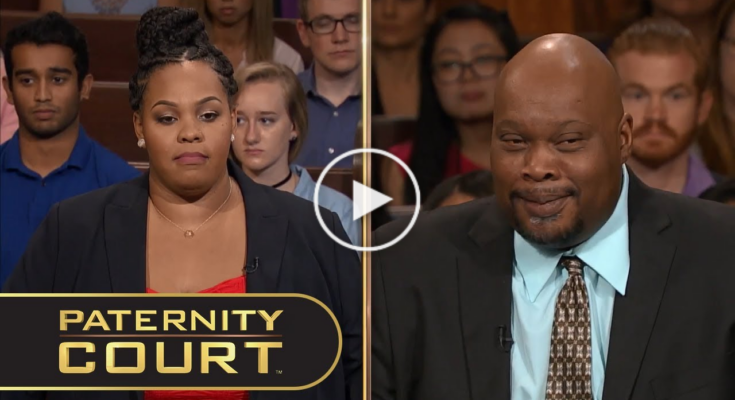In a dramatic courtroom battle that resonated with emotions, the Fuel v. Burnett paternity dispute unfolded, leaving no heart untouched. The case revolved around 31-year-old Latoya Fuel’s fervent quest to establish her biological relationship with Mr. Burnett. As testimonies and allegations clashed, and emotions ran high, this article delves into the poignant details of the case, highlighting the significance of empathy and support during such emotionally charged proceedings.
Fuel’s determination to unravel the truth stemmed from a life-altering event: her brother’s senseless murder in September 2015. The devastating loss triggered a deep depression, propelling her to seek closure and understand her identity.
“I’ve lost 90 pounds just off of depression and stress… It’s opening my eyes. Life is really short. I shouldn’t even be here, I shouldn’t even have to bring him here to prove that he’s my father. I just want closure, Your Honor. That’s all I want.”
Fuel adamantly accused Mr. Burnett of denying her paternity to avoid taking responsibility for his actions and tarnishing her mother’s reputation. Burnett, in turn, acknowledged a sexual relationship with Fuel’s mother but asserted that there were other potential fathers due to her history.
“I don’t have no idea really why [she is denying paternity]. You know, she’s been my niece.”
Fuel and Burnett’s social media exchange further intensified the emotions surrounding the case. The back-and-forth arguments on Facebook laid bare the pain and frustration both parties were experiencing.
“Stop it, Toy, there ain’t no proof. Until I get proof, I love you like a niece.”
Jenae Johnson, Mr. Burnett’s biological daughter, shed light on her relationship with Miss Fuel. While acknowledging that she knew of Fuel through family connections, she denied any rumors about her father potentially being Fuel’s biological father.
“I knew who she was. But you didn’t know… I’ve never had any contact with her like, maybe a barbeque or something where she was there. But it’s never been, like, we have conversations or anything like that.”
With emotions running high, the court awaited the DNA test results, which ultimately revealed that Mr. Burnett was not Fuel’s biological father.
“In the case of Fuel V. Burnett… Mr. Burnett… You are not her father.”
The revelation that Mr. Burnett was not her biological father shattered Fuel’s hopes for closure. Her heart-wrenching sobs in the courtroom highlighted the immense emotional burden she had carried for years.
“I’m happy that I’m here today with you all so that I can give you some answers… Because we need them. I have the results for you, Ron. Your Honor.”
Fuel’s anguish and Mr. Burnett’s emotional outbursts underscored the significance of compassion and support during paternity disputes. The court acknowledged the pain both parties experienced and provided them with resources for counseling and healing.
“Until the truth has been told, you can’t just say stuff! That’s just like her momma just said… He momma said this is… ‘He’s your dad.’ No, she didn’t. She weren’t 100% sure. My momma told me that. She was real with me. She… My mom was real with me.”
The Fuel v. Burnett case highlighted the importance of open communication between potential family members in paternity disputes. Misunderstandings and lack of information can exacerbate emotional distress and hinder the search for truth.
“We talked about, she was just like, ‘Well, my dad told me that, um, ‘it could be many possibilities…'”
Witnessing Fuel’s heartbreaking search for identity, the court implored Mr. Burnett to be compassionate and understanding towards her feelings, despite the DNA test results.
“I hope after seeing what this young girl has gone through, your niece, a young girl you have openly called your niece… That you will check on her. It’s the right thing to do and I believe in my heart that… Other things have transpired that her mom didn’t tell her all the truth. And that’s what I believe.”
The Fuel v. Burnett case epitomizes the emotional complexity surrounding paternity disputes. It underlines the importance of empathy, compassion, and support during such emotionally taxing proceedings.
“It does bring closure, and I’m… I really apologize, I’m sorry. To both of y’all. Apology accepted. There’s no apology needed though.”
By fostering an environment of understanding, we can alleviate the emotional burden experienced by those involved in such challenging cases and pave the way for healing and closure. The journey towards truth and self-discovery may be arduous, but with empathy and support, individuals like Latoya Fuel can find the strength to move forward with hope and resilience.



